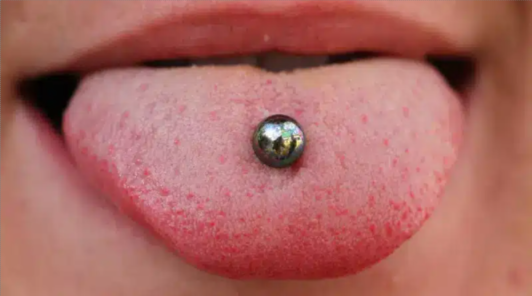Tongue piercings, now commonly seen in piercing studios, used to hold significant cultural and spiritual value. In ancient Mayan and Aztec civilizations, priests would undergo tongue piercings as part of sacred rituals, believing it allowed them to communicate with gods. The bloodshed during the procedure was considered a sacred offering, symbolizing a deep connection between humans and the divine, unlike today’s more casual approach.

In modern times, tongue piercings have evolved from a spiritual practice to a form of self-expression. For many, it’s a way to show individuality or make a subtle statement, much like a discreet tattoo that holds personal meaning. Though often linked to sensuality in pop culture, the reasons for getting a tongue piercing are varied. Some see it as a style choice, others as a way to connect with a certain subculture, and for some, it’s a form of empowerment or a way to simply refresh their appearance.
Taking care of a tongue piercing is crucial to avoid infections. Since the mouth is constantly exposed to bacteria, good hygiene practices are essential for proper healing. Using antiseptic rinses and eating soft foods helps ensure the piercing heals safely and without complications.

Ultimately, the meaning of a tongue piercing can differ from person to person. It can represent a spiritual symbol, a rebellious act, a fashion accessory, or an expression of sensuality. Regardless of the reason, a tongue piercing speaks volumes—it’s a unique form of self-expression that often requires no words to communicate its significance.

